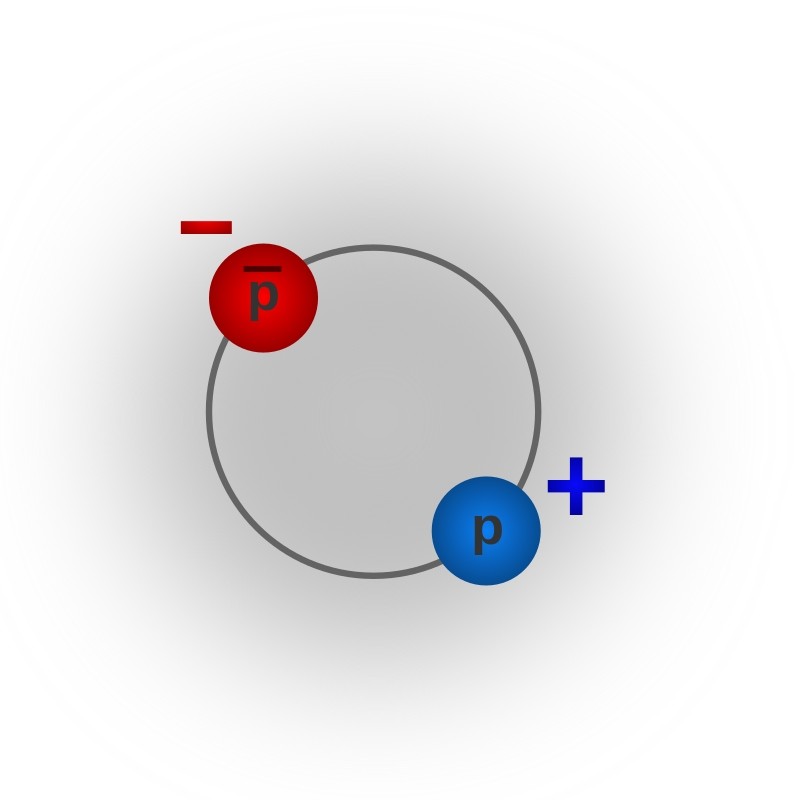John Carlos Baez on Nostr: It looks like they've found protonium in the decay of a heavy particle! 🎉 ...
It looks like they've found protonium in the decay of a heavy particle! 🎉
Protonium is made of a proton and an antiproton orbiting each other. It lasts a very short time before they annihilate each other.
It's a bit like a hydrogen atom where the electron has been replaced with an antiproton! But unlike a hydrogen atom, which is held together by the electric force, protonium is mainly held together by the strong nuclear force.
There are various ways to make protonium. One is to make a bunch of antiprotons and mix them with protons. This was done *accidentally* in 2002 during the first experiment that created antihydrogen. They only realized this upon carefully analyzing the data 4 years later.
This time, people were studying the decay of the J/psi particle. The J/psi is made of a heavy quark and its antiparticle. It's 3.3 times as heavy as a proton, so it's theoretically able to decay into protonium. And careful study showed that yes, it does this sometimes!
The new paper on this has over 550 authors, so I won't list them all. It also has a rather dry title - not "We found protonium!"
• Observation of the anomalous shape of X(1840) in J/ψ→γ3(π+π−), https://arxiv.org/abs/2310.17937
The idea here is that sometimes the J/ψ particle decays into a gamma ray and 3 pion-antipion pairs. When they examined this decay, they found evidence that an intermediate step involved a particle of mass 1880 GeV/c², a bit more than an already known intermediate of mass 1840 GeV/c².
This new particle is a bit lighter than twice the mass of a proton, 938 GeV/c². So, there's a good chance that it's protonium!

Protonium is made of a proton and an antiproton orbiting each other. It lasts a very short time before they annihilate each other.
It's a bit like a hydrogen atom where the electron has been replaced with an antiproton! But unlike a hydrogen atom, which is held together by the electric force, protonium is mainly held together by the strong nuclear force.
There are various ways to make protonium. One is to make a bunch of antiprotons and mix them with protons. This was done *accidentally* in 2002 during the first experiment that created antihydrogen. They only realized this upon carefully analyzing the data 4 years later.
This time, people were studying the decay of the J/psi particle. The J/psi is made of a heavy quark and its antiparticle. It's 3.3 times as heavy as a proton, so it's theoretically able to decay into protonium. And careful study showed that yes, it does this sometimes!
The new paper on this has over 550 authors, so I won't list them all. It also has a rather dry title - not "We found protonium!"
• Observation of the anomalous shape of X(1840) in J/ψ→γ3(π+π−), https://arxiv.org/abs/2310.17937
The idea here is that sometimes the J/ψ particle decays into a gamma ray and 3 pion-antipion pairs. When they examined this decay, they found evidence that an intermediate step involved a particle of mass 1880 GeV/c², a bit more than an already known intermediate of mass 1840 GeV/c².
This new particle is a bit lighter than twice the mass of a proton, 938 GeV/c². So, there's a good chance that it's protonium!
